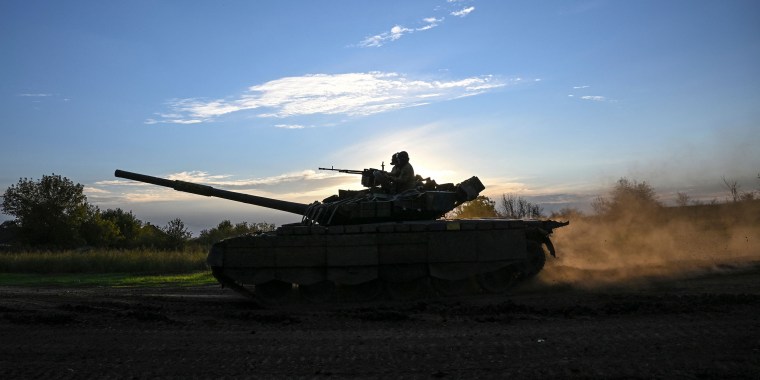The U.S. and Germany are resisting pressure to send certain kinds of weaponry to Ukraine that they believe could prompt Russia to overreact, making the already dire situation in Ukraine worse. That’s rankling some countries and activists who favor arming Ukraine with bigger and bigger weapons. But it's the prudent course of action at this phase of the conflict, given Moscow's escalation of the war with de facto threats to use nuclear weapons to defend land that it will formally annex from Ukraine on Friday, and its move to mobilize large number of reservists.
It’s always possible to increase support for Ukraine, but there are no redos if someone accidentally sparks a global war.
In a recent interview with The New York Times, German Chancellor Olaf Scholz unapologetically stood behind his decision to decline to send Leopard battle tanks or Marder infantry fighting vehicles to Ukraine for now. He said Germany was supporting Ukraine “in a way that is not escalating to where it is becoming a war between Russia and NATO, because this would be a catastrophe.”
But a steady, measured flow of support for Ukraine is the wisest path forward.
And President Joe Biden has for now decided not to send Ukraine the Army Tactical Missile System, which has a range of 190 miles, out of concern that escalating too quickly with farther-reaching weapons in Ukraine could cause “World War III.”
These signs of Western caution are not in vogue in center-left politics in the U.S. In the Times article, the overwhelming majority of the author’s analysis frames Scholz as an appeaser who is callous toward his neighbors to the east; many commentators on the report deemed Scholz weak and a disgrace. And Biden’s position is a damper for advocates of arming Ukraine even more heavily as it makes military breakthroughs and Russian President Vladimir Putin mobilizes more aggressively.
But a steady, measured flow of support for Ukraine is the wisest path forward. The West has dealt massive blows to Russia with a punishing sanctions regime. It has dealt massive blows to Russia’s military by providing top-notch intelligence and billions of dollars of sophisticated lethal aid to Ukraine. And now Ukraine’s stunning military breakthroughs are delivering massive blows to Russia’s reputation as a major player in the global arena.
Putin faces humiliation at the hands of a far smaller country, and he’s coming under pressure from Russian nationalist hawks to defend their nation’s pride. Now he is acting desperately by mobilizing hundreds of thousands of military reservists — some by force, it appears — and implicitly threatening to defend Russia’s “territorial integrity” with nuclear weapons.
Putin's recent use of the phrase “territorial integrity” is worrisome, experts say. Given that Russia is now in the process of formally annexing four regions of Ukraine that it partially controls through a sham referendum process, Putin is hinting that he could retaliate in the harshest possible way to protect Ukrainian territory that he's desperate to claim as a trophy amidst his failing invasion. It is conceivable, military experts say, that Putin could fire a tactical nuclear weapon against Ukrainian forces or through a demonstration strike in an uninhabited area to ward off attempts to win back territory that he he's scrambling to plant a flag on. That would not only be a horrific and destructive act of war — it could easily spark a perilous escalatory spiral with the West.
Keep in mind, too, that Kremlin watchers have pointed out that Putin has amassed more and more power within his own government in recent years and that personalist authoritarians tend to be more unpredictable. Some experts believe Putin’s extreme isolation and unprecedented power might explain why he made the strategically disastrous decision to invade Ukraine in the first place. Putin still has the same blinders on and they could make him behave rashly if he keeps losing the war. “We should not underestimate his risk appetite,” the deputy CIA director, David Cohen, said recently.
While critics may paint the U.S. and Germany as weak, the reality is that declining to pursue reckless heroics is an act of strength. None of the current slow and steady approaches foreclose the possibility of intensifying the world’s already extremely robust aid to Ukraine in the future. The point is, rather, that Putin is cornered yet still extremely dangerous, and he is evidently nervous about his standing within both his country and the international arena. The world’s pro-Ukraine coalition should think carefully and strategically about how to beat him on the battlefield while negotiating an effective diplomatic solution that ensures Ukraine remains a sovereign country — but without risking a war that would be far worse than the world has right now.

